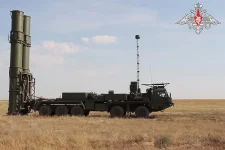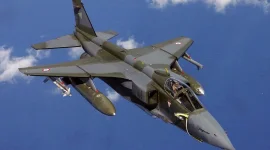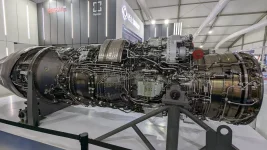- Views: 2K
- Replies: 4
In a major boost for India's domestic defence manufacturing, Russia has reportedly agreed to a critical transfer of technology (ToT) for its advanced S-400 'Triumf' air defence missile system to a private Indian company.
This landmark agreement is part of a broader plan for the Indian Air Force (IAF) to procure five additional S-400 squadrons, significantly strengthening the nation's air defence shield along its borders.
The move marks a substantial step forward for the 'Make in India' initiative in the defence sector.
The S-400 Triumf, widely regarded as one of the world's most capable long-range surface-to-air missile systems, is a cornerstone of India's air defence network.
The original $5.43 billion agreement for the first five squadrons was signed in 2018, with three of those units already operational and the remaining two expected to be delivered by 2026.
This new acquisition, estimated to be valued between $4 billion and $5 billion, aims to address the evolving security landscape and enhance India's capability to counter sophisticated aerial threats.
The procurement will follow a hybrid model designed to balance immediate operational needs with long-term strategic goals.
Under the arrangement, three squadrons will be delivered directly from Russia's Almaz-Antey defence corporation, ensuring their rapid induction into service by approximately 2028.
These units are expected to be deployed to protect sensitive areas, including the eastern Ladakh and Rajasthan sectors.
The most significant aspect of the deal involves the remaining two squadrons. These will be manufactured in India through a comprehensive technology transfer to a yet-to-be-named private sector defence firm.
This unprecedented move will empower the Indian company to produce key components, including the system's advanced 40N6E extended-range and 48N6 series interceptor missiles.
By localising production, India aims to reduce its import dependency, build technical expertise, and secure its supply chain against international sanctions and geopolitical disruptions.
Further supporting this push for self-reliance, the Russian manufacturer Almaz-Antey is also finalising plans to establish a dedicated Maintenance, Repair, and Overhaul (MRO) facility in India.
This centre, potentially located at the Bharat Dynamics Limited (BDL) campus in Hyderabad, will provide in-country support for the S-400 systems.
A local MRO hub will ensure higher operational availability of the squadrons by eliminating the logistical challenges of sending equipment to Russia for major repairs, a goal consistently emphasized by IAF Chief Air Chief Marshal V.R. Chaudhari as essential for India's defence preparedness.




